Search Results
Showing results 21 to 40 of 88
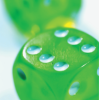
Race to the Top
Source Institutions
In this math game (Page 6 of the Are You Game? PDF), learners examine the probability of rolling sums from 0 to 12 with two dice. The first player to reach the finish line is the winner.
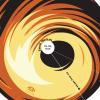
Race Around the Black Hole
Source Institutions
In this game, learners cutout a model black hole "cone" and attempt to roll around a marble or other small spherical object without touching the event horizon.

By the Numbers
Source Institutions
Learners describe objects in a room using only numbers and shapes. They can measure the object (like a desk) and make a list of facts about it (e.g.

Power Up!
Source Institutions
In this online game, learners must purchase power plants for their city.
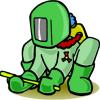
Hanford at the Half-Life Radiation Calculator
Source Institutions
This quiz lets you estimate your annual radiation exposure.

Gravity Launch
Source Institutions
In this online game, learners attempt to send a rocket ship to various targets. Learners can adjust the angle and thrust of the rocket before it is launched.
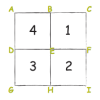
Solving Playground Network Problems
Source Institutions
In this activity, learners use cooperation and logical thinking to find solutions to network problems on the playground.

Train Your Brain
Source Institutions
In this activity, learners play a trick on their own brain to see if the brain can learn to ignore distracting input. Colors and words are used to play the visual trick, known as a Stroop Test.

Dance Diagram
Source Institutions
Teams of learners use a series of stick figures made from pipe cleaners to model a dance routine. Then, they use this model to communicate to another learner who performs the dance routine.
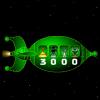
Slush Rush
Source Institutions
In this online game, learners run an outer space drink stand and thirsty alien customers are on the way.

The Best Dam Simulation Ever
Source Institutions
This online simulation game explores the different consequences of water levels on the Columbia River in the Pacific Northwest.

Cover Up!
Source Institutions
Learners test their memory and ability to learn memory strategies in this game. Partners start with an array of poker chips, coins, or paper squares on the table.
Mystery Jars: Make Your Own: Estimating and Counting
Source Institutions
Learners make a counting/estimating jar to exchange with friends or bring home.
Pattern Sticks
Source Institutions
In this activity, learners compete to be the first to win twenty counting pieces. First, learners draw patterns on only one side of four craft sticks.

Is it a Fair Game?
Source Institutions
In this math activity, learners play two versions of a card game and decide what makes a game fair. Learners also practice addition and subtraction skills.
Race to the Dollar
Source Institutions
In this math activity, learners play a card game to practice adding coins quickly, just like a banker. First, learners create coin cards. Next, the cards are dealt to each player.

Circle Logic
Source Institutions
This is a deceptively simple game to teach strategy, planning, and pattern analysis. In this game, learners take turns removing tokens from a board, and develop a plan to take the last piece.

Color Spy
Source Institutions
In this activity (16th on the page), learners play a variation of the "I Spy" game to explore color. Learners work in teams with each team assigned a color.
Take a Guess
Source Institutions
In this activity, learners use what they know about probability to figure out what is in a mystery bag. Learners analyze data to guess how many of each color crayons are in the bag.

Taste Match Game
Source Institutions
In this activity (3rd activity on the page), learners taste test different foods and categorize them as sweet, bitter, sour, or salty. Learners compare their results with the group.
